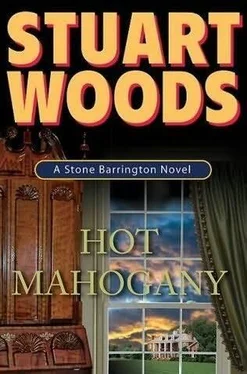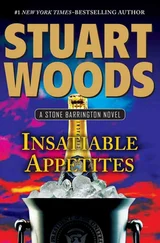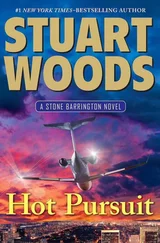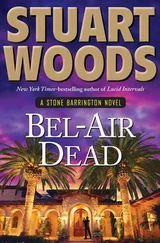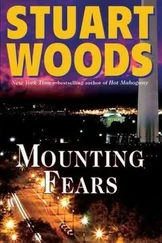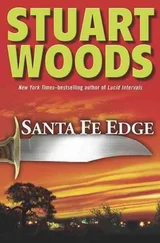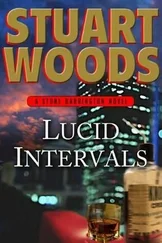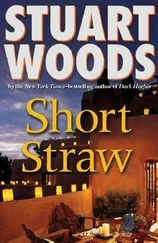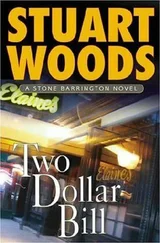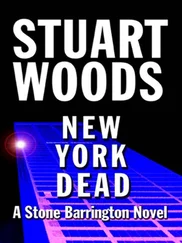They stood in front of her house, watching the firemen carry out the hose. When the men were out, a captain approached them.
“You were lucky,” he said. “Come with me.” He led them through the living and dining rooms into the kitchen, which was a mess. The captain pointed to a blackened spot on the floor. “Someone dropped a bottle of an accelerant, probably gasoline, and tossed a match into it. Fortunately, it was in an open area, and there wasn’t much to consume. It was a small bottle, too, probably no bigger than a Coke bottle. You’ll have a lot of cleaning to do, from the smoke, but there’s remarkably little actual fire damage.”
“I heard the bottle pop,” Stone said, “and I could see the flames from the rear window of my house, across the way.”
“A quick nine-one-one call always helps,” the captain said. “If there’s nothing else we can do for you, I’ll say good night.” He gave Tatiana a little salute and left.
“It was Henry,” Tatiana said.
“It’s always the husband,” Stone replied. He glanced at his watch. “You’re sleeping at my house tonight.”
“I certainly am,” she said.
The following morning, after breakfast, when Tatiana had gone home, Stone called Bob Cantor.
“Yeah?”
“I’ve got some work for you,” he said.
“Always good news.”
“The name is Henry Kennerly, real estate guy. It’s a bad divorce.”
“And you’re a friend of the wife,” Cantor said.
“Right. He set a fire in her house last night. Luckily, there wasn’t much damage. I want phone, bank and credit card records. He has an expensive girlfriend, and I want to know how much she’s costing him.” He gave Cantor the address. “And I want you to replace all the locks with better locks.”
“Right. How’s the mahogany-secretary thing going?” Cantor asked.
“Still simmering but not on the boil yet. I’ll bring you up to date on developments when I see you. Anything interesting on Charlie’s phone?”
“There have been a couple of short, cryptic phone calls to a cell phone. Just a few words exchanged.”
“What sort of words?”
“They’re like ‘It’s done. Good. Details later. Good.’ ”
“Whose cell phone?”
“I don’t know; I can’t trace it. Probably a prepaid job from Radio Shack or a supermarket.”
“I don’t like it when the guy I’m on to gets that smart,” Stone said.
“Neither do I.”
“If he’s going to be that cryptic, is there any point in paying your guy at the phone company five bills a day?”
“Probably not.”
“End it, then.”
“Will do. I’ll e-mail you Mr. Kennerly’s printouts later today.”
“That’s fast.”
“We aim to please.” Cantor hung up.
Stone hung up, too. He was going to give Tatiana all the ammo she needed to nail her husband’s hide to the barn door.
Barton Cabot visited the Madison Avenue branch of his bank and asked for James Foster, an important senior vice president who was in charge of all Manhattan branches. He was shown directly in.
“Good morning, Barton,” Foster said, waving him to a seat.
“Good morning, James. I have some new business for you.”
“Always good news. Tell me about it.”
Barton removed a stack of eight-by-ten prints of the photographs he had taken in Bristol and handed them over.
Foster leafed through them rapidly. “This is all very nice, but what am I looking at?”
“You’re looking at the largest and finest collection of eighteenth-century American furniture in private hands,” Barton said.
“In whose hands?”
“Mine.”
“Congratulations. It must have taken a long time to put together that collection.”
“It took me two days,” Barton said.
“I don’t understand.”
Barton sighed. The man was a banker. “All these pieces have been, since they were made, in one house, that of a Mrs. Caleb Strong of Bristol, Rhode Island, who passed away Sunday night at the age of ninety-seven.”
“And you inherited all these?”
“No, a few days before her sudden death, when she appeared to be in excellent health, I contracted with her to buy the collection for twenty million dollars, to be paid at the rate of a million dollars a year for the rest of her life, the remainder upon her death.”
“Which was Sunday night?”
“That’s correct.”
“So now you owe her estate twenty million dollars?” The banker’s eyes were wide.
“Correct again.”
“Do you have twenty million dollars?”
“Of course not. Why do you think I’m here?”
“You want to borrow twenty million dollars from us ?”
“What’s the matter, James, don’t you have twenty million dollars?”
“Of course we do, but… what sort of collateral can you offer?”
“The collection itself. I put its value at between forty and fifty million dollars.”
“Have you had an independent appraisal?”
“That would take weeks, perhaps months. I know as much about these pieces as anyone in the country; I am certain of their value, and I must close this deal in ten days.”
“Barton, do you know what you’re asking?”
“Of course I do. I would only need the loan for a short period, perhaps as little as three months.”
“It’s not the term of the loan that worries me, Barton; it’s the ten days before you must have the money.”
“I know this is unusual, James, but it’s also the greatest opportunity of my lifetime, one that will make me very wealthy.”
“How would you realize the value of the collection? Auction it?”
“It would take at least a year to pull off an auction this big,” Barton said. “I have a different plan.”
“I’d like to hear about that,” Foster said.
“It’s my intention to offer the collection to some of the biggest museums in the country,” Barton said, “intact. They would pay for the collection by soliciting large donors, and they would display it, permanently, in replicas of some of the rooms of the Strong house.”
“It sounds as though you’re talking about building a wing onto a museum. That would take a lot longer than an auction.”
“No, there are several museums that could make room for the collection in their present space.”
“Barton, I really think it would be better to auction the collection piece by piece. You’d get huge publicity for such a sale, wouldn’t you?”
“Certainly,” Barton said, “but I don’t think you’d realize as much money from such an auction.”
“You expect to get more from a museum ?”
“The whole of the collection is worth more than the sum of the parts,” Barton explained, “and only a museum could raise sufficient funds to buy it intact. You have to understand that the availability of this collection is an historic event, one that will never occur again.”
“Well, I suppose you have a point there, Barton, but you’re talking with a bank here. The loan committee could not approve such a large loan; it would have to go to the board, and it couldn’t even be presented to them until the whole collection had been appraised by an established authority, like an auction house, perhaps more than one. There are also questions of security and insurance that would have to be satisfied.”
“I understand that this is an unusual request, James, but I’ve been a client here for a long time, and I have put much more than twenty million dollars in cash flow through this bank during those years.”
Foster consulted his calendar. “Barton, the next scheduled meeting of the board is five weeks from today, and I’m not sure we could get the appraisals done by that time. They’re certainly not going to call a special board meeting for this purpose, and, anyway, I happen to know that three of the board members, including the chairman, are abroad. Couldn’t you ask for more time to close the deal?”
Читать дальше
